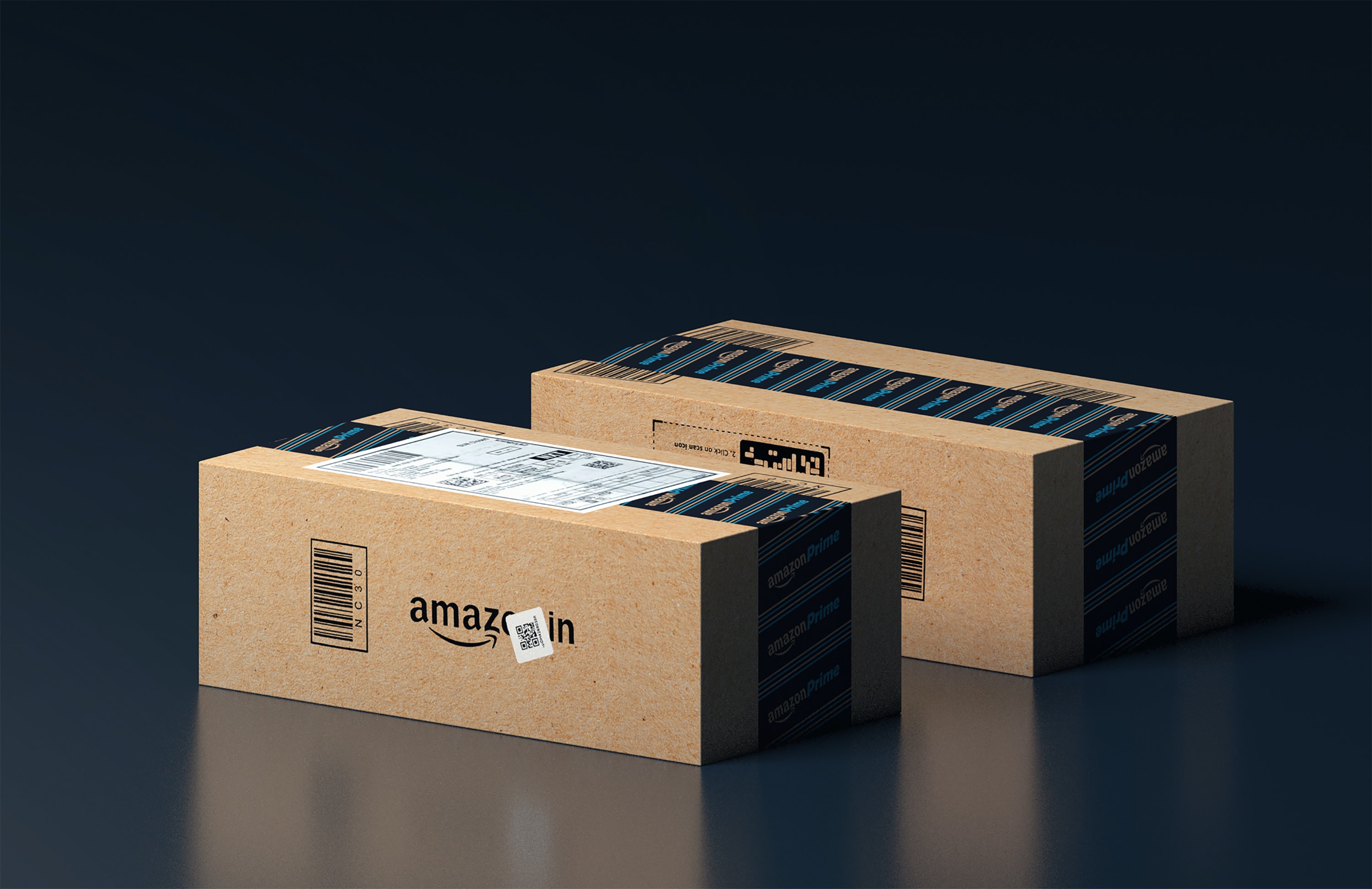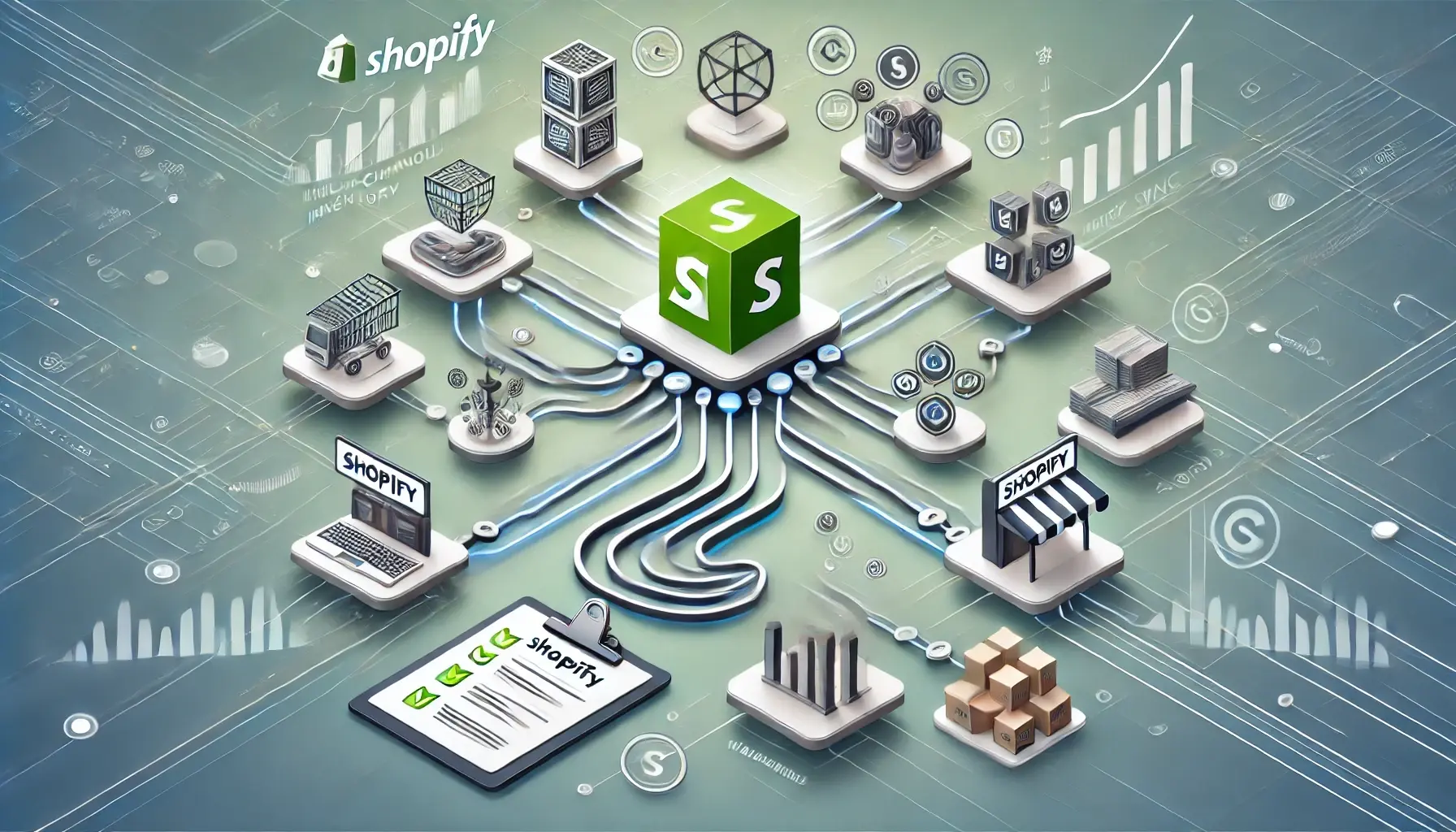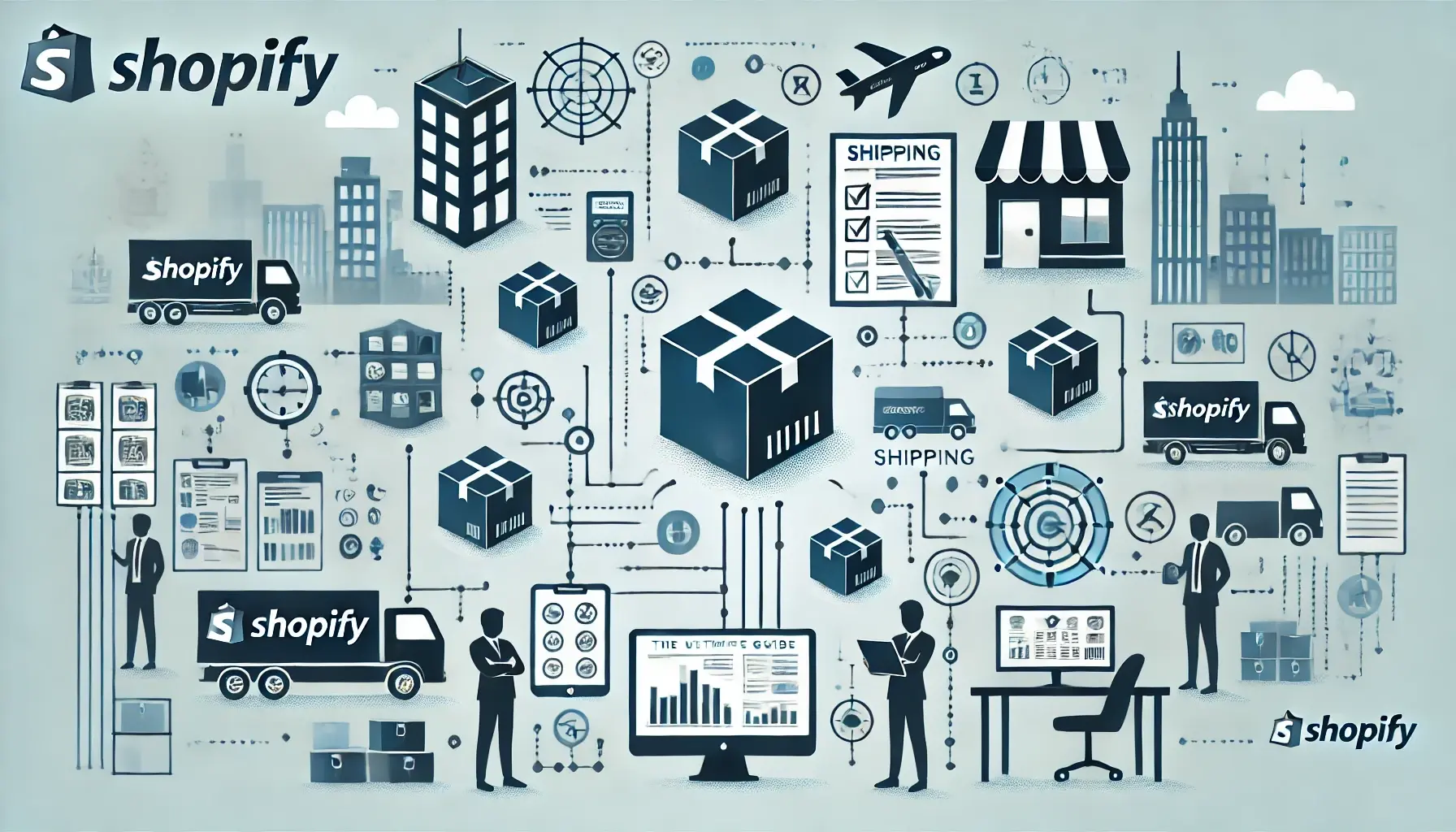There is an age-old mantra: "If you want something done right, you have to do it yourself."
When it comes to eCommerce self-fulfillment, though, many merchants struggle with this notion. The question they have is simple to ask, yet a difficult one to answer: Can I do it myself?
The inherent challenges of any eCommerce fulfillment strategy make how to best manage it a variable proposition. One size absolutely does not fit all and what works well for one brand might be disastrous for another.
Fortunately, when it comes to the options available to merchants, they abound. Companies may self-fulfill, outsource eCommerce order fulfillment completely, or create a hybrid situation uniquely suited to their wants and needs.
We'll discuss here the distinct advantages and disadvantages of each model. We'll also explain the ways SkuNexus provides a management software solution to complement whichever route you take. Our goal is to provide you the necessary insights to make a decision.
Self-Fulfillment
The eCommerce retail startup scenario often goes something like this. In a nutshell, a founder has an idea, develops a business plan, and thinks of a company name and branding. He or she then builds a website, establishes sales channels, and bravely enters the market. With no orders to process, little thought is given to fulfillment.
Inventory may very well be stored in a spare bedroom. The kitchen counter will double as a packing station. Customer orders trickle in and exhilaration ensues.
Parcels are meticulously prepared. Shipping management entails someone driving them down to the post office.
If even a modest level of success is achieved, this version of self-fulfillment quickly becomes unsustainable.
For an established retailer, however, entering eCommerce is vastly different. It’s both a total shakeup as well as the necessary next move into the new frontier. Time-tested ways of fulfillment operations must either be altered, augmented, or dispensed with altogether.
While experienced merchants may need to go back to the proverbial drawing board, they are not at a steep disadvantage. This group can be extremely well-suited for self-fulfillment. They need only to combine their established brands and plentiful resources with a powerful order management system (OMS).
Let’s examine the pros and cons of eCommerce self-fulfillment. Then, let's consider elements that make established business entities prime candidates to do it themselves.
Pros
- Control
- From the time products arrive at receiving until they ship out the door, all processes are under your control.
- Any issues that arise can be addressed quickly, directly, and hands-on.
- Customization
- Recent data shows nearly 75% of merchants have realized the effectiveness of branded packaging. These merchants are now looking to optimize the unboxing customer experience.
- Packing that is specialized for branding, fragile/luxury products, or refrigerated/frozen items involves procedures best suited to internal handling.
- Negotiated Shipping
- High volume can yield competitive and discounted rates when you ship orders.
- Long-Term
- Prolonged benefits of optimized self-fulfillment, such as across-the-board cost reductions and the ability to scale operations.
Cons
- Time
- Setting up, overseeing, and maintaining self-fulfillment takes greater time and effort than other fulfillment options.
- Money
- Warehouse space and equipment, labor, packing materials, and management software are all required investments for optimal self-fulfillment.
- Geographic Limitations
- Increased shipping costs can result depending on where fulfillment is being executed vs. delivery locations.
Taking into account these factors, it is easy to see why self-fulfillment becomes difficult for a bootstrapped startup. However, the multiple resources they possess make it a perfectly viable endeavor for an established retailer.
- Leadership & Experience
- Nothing can replace the knowledge gained from years spent in the retail trenches.
- Experienced merchants have weathered economic storms and adapted to numerous trends. They likely possess the organization, discipline, and agility to make a successful foray into eCommerce self-fulfillment.
- Finances
- The argument against self-fulfillment is often predicated on cost. While this certainly applies to bootstrapped fledglings, well-managed brands should be in a much better position to handle it.
- A comprehensive OMS (like SkuNexus) can reduce fulfillment costs in all manner of ways.
- Warehouse Space
- Depending on the size of the business, many retailers already rent/own warehouses in one or multiple locations.
- Retailers with a regional or national footprint have a distinct advantage.
- Brick-and-Mortar Stores
- Brick-and-mortar stores can be leveraged as multi-layered fulfillment centers. They can support traditional in-person retail, BOPIS, and ship-from-store all under one roof.
- Labor
- Retail associates can take fulfillment roles (pick/pack/ship) within the stores themselves in the above examples.
- Local Delivery
- Certain business types (e.g. large appliances, furniture) often maintain their own fleets of delivery vehicles/personnel. For those in large metropolitan areas, in particular, this can be an excellent supplement to using major shipping carriers.
The key component that ties all these attributes together is management software/automation and the control and accuracy that it provides. Many long-standing retail brands have attempted eCommerce self-fulfillment. They have run into problems due to an abundance of manual processes and/or outdated/misaligned software.
Some of the features eCommerce fulfillment software can offer include:
- Directed Putaway
- A Warehouse Management System (WMS) automates and expedites what can be a complex manual decision-making process.
- This can optimize the warehouse layout, prioritize stocking and location of high-volume items, and facilitate faster order picking.
- Automated Wave Picking
- Directs warehouse workers to pick multiple orders in a specific inventory zone within the facility.
- Streamlines order picking, enhances high-volume operations, and reduces errors and mistakes.
- Directed Warehouse Routes
- Optimizes employee efficiency by giving pickers the most efficient route through the warehouse to pick an order.
- Barcode Scanning
- Tracks items and ensures accuracy throughout the fulfillment process.
- Shipping Option Mappers
- Pre-determined selections for various items (e.g. parcel size, packing materials needed, shipping class) can be made within the OMS, providing total automation of the packing process.
This does not mean that less-established eCommerce retailers should not consider or attempt self-fulfillment. SkuNexus, for example, has design flexibility which allows it to expand capacity and scale along with your business. SkuNexus is architected to seamlessly fit into your existing operations, whether you're adding one simple product or an entire complex warehouse.

Dropshipping
Some eCommerce merchants choose to act as middlemen and carry zero inventory in some or all products. For these companies, dropshipping is the order fulfillment method.
When a dropshipper receives an order, it purchases the item(s) from an outside vendor. That vendor is then responsible for fulfillment in the dropshipper’s name. A critical element to the model is this: items are being sold out of someone else’s inventory.
This model has both real advantages and certain drawbacks.
On the upside:
- The lack of overhead required is a big draw for merchants with limited capital.
- Dropshipping allows merchants to offer a vast array of products and also to use international vendors for global reach.
- It is an excellent way to test-market new item types without a major investment in inventory.
- The same idea applies to market research re: new locations to target.
- Dropshipping can also function as a safety valve if unforeseen issues affect your own supply chain/inventory, on any level.
On the downside:
- Dropshipping can be expensive with reduced profit potential.
- Low barriers to entry make for a highly competitive field.
- A vendor’s supply chain issues become your supply chain issues.
- Communication breakdowns across multiple vendors can prove extremely problematic.
- Manually managing orders (at a high volume) can lead to a variety of errors.
As in other eCommerce fulfillment models, optimized software management can give significant help to a merchant engaged in dropshipping. The SkuNexus solution includes a Vendor Management System (VMS) which performs a range of functions, including:
- Providing an organized view of all dropshipping activity,
- Facilitating accurate communication between dropshippers and their vendors,
- Assigning vendors their own portals on the platform, and
- Automating the issuance of POs in the event of an order.

3PL (Third-Party Logistics)
In the relatively short history of eCommerce, the companies collectively known as 3PLs have truly come of age. The 3PL Logistics industry was largely born out of U.S. government deregulation of the commercial trucking industry in the 1980s. Since then, it has grown significantly, fueled in no small part by the online shopping revolution.
3PL inventory management now plays a massive role in eCommerce fulfillment and is useful for a range of retailers. 3PL logistics expertise allows clients to confidently outsource fulfillment and focus on the rest of the responsibilities involved with running their business.
Other advantages to using a 3PL warehouse include:
- Reduction of overhead expenditures (e.g. warehouse rent/labor) can free up capital for investment elsewhere.
- Collective volume and order frequency allow them to negotiate lower shipping rates.
- Large networks can provide fulfillment locations far beyond a merchant’s own reach.
- Inventory can be strategically distributed across the network based on geographic sales data.
- The ability to manage international fulfillment and its associated challenges (customs, import laws, et al).
Such convenience comes at a price, of course. 3PL warehouses can provide support in several areas, but they are not without disadvantages.
- Loss of control over one’s inventory and processes is something many merchants will not allow.
- An upfront investment is required to onboard with a 3PL inventory management (e.g. software integration, SKU upload).
- You are a customer of a service provider with its own business plan. Its fulfillment fees can and will increase over time.
- 3PL companies have a myriad of clients across the range of retail markets. If you have highly-specific needs, a general provider may not be able to meet them.
- For optimal performance, your inventory management software needs to integrate seamlessly with that used by the 3PL.
The astonishing growth of the 3PL industry speaks to the advantages outweighing the disadvantages for many companies. However, not every function is outsourced to these service providers. A merchant’s order management system will still play a large role in the 3PL relationship. The order management software will continue to route orders, receive tracking information, and/or manage vendors/generate POs for inventory restocks.

FBA (Fulfillment By Amazon)
FBA provides the same services as a standard 3PL, but with some added wrinkles that give it a considerable edge.
- FBA sellers can leverage Amazon’s powerful Prime membership offerings for their products, which includes their industry-standard 2-day free shipping.
- Qualified FBA listings are displayed with the Prime logo, so customers know that Amazon handles packing, delivery, customer service, and returns.
Considering Amazon’s eCommerce dominance, the usefulness of these marketing elements to drive a brand’s revenues cannot be overstated. However, multiple caveats must also be considered.
- Every merchant is provided the same level of customer support. So, your company will not differentiate itself from other companies that are using the same platform.
- Flexibility and customization are not generally part of the program. Amazon has strict rules that must be adhered to across multiple categories.
- For example, no non-Amazon branding on parcels, labels, etc. is allowed.
- Amazon may dictate the fulfillment center locations to which a merchant must ship its products. If geographically distant, these costs can be substantial.
- Price increases and hidden fees have long been a point of contention with FBA.
- FBA usually increases its rates during holiday seasons.
Despite these concerns, data shows that nearly 70% of Amazon’s listing merchants use FBA to handle their order fulfillment.

Order Management Software
Regardless of fulfillment type, the right order fulfillment software system is critical to optimizing operations. It can also maximize accuracy and facilitate clear communication across an ever-growing number of channels.
SkuNexus is designed for maximum flexibility and customization, and to eliminate manual fulfillment/provide automation at every stage of the process. This makes it a potent weapon in the self-fulfillment arsenal. Brands who desire inventory management software that can integrate with their highly-specialized systems and grow alongside them should seriously consider SkuNexus.
For merchants who wish to dropship, use 3PLs or FBA, in any combination, SkuNexus can also be extremely valuable. Its order management, inventory management and vendor management systems will help optimize all remaining in-house warehouse fulfillment-functions. It will also provide vendor management solutions for your wide range of business partners.
To learn more about SkuNexus and how it can help you meet your fulfillment goals, please subscribe to our blog or book a demo today!
Ready to Transform Your Operations?
See how SkuNexus gives you full control over inventory, orders, warehouse, and shipping.
Schedule a Free Demo →Robert McCarthy
CEO & Founder, SkuNexus
With over a decade in eCommerce operations, Yitz built SkuNexus to solve the problems he saw firsthand — rigid platforms that couldn't adapt. Today, SkuNexus is the only fully customizable, open-source operations platform for inventory, orders, warehouse, and shipping management.




